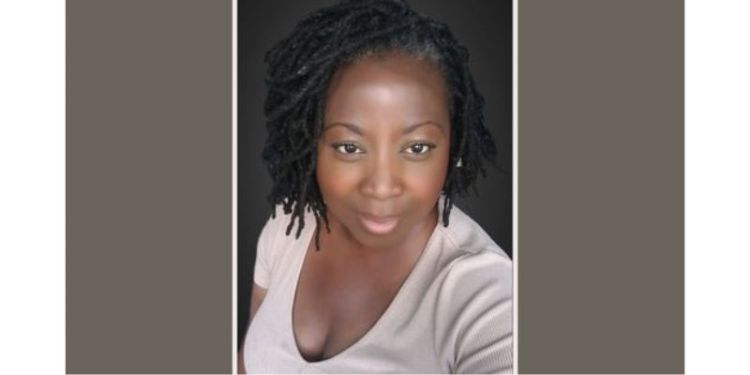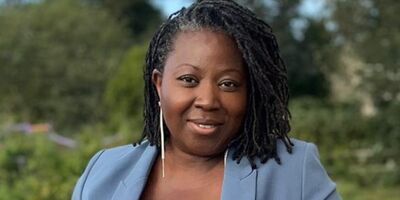Breaking barriers: Professor Lisa-Dionne Morris

Acclaimed academic Professor Lisa-Dionne Morris is celebrating success after joining the 100 Black Women Professors Now! programme..
The contacts I’ve made and the people I’ve grown close to have propelled me to rediscover inspiration at work.
Professor Morris was recently appointed Professor of Public and Industry Understanding of Capability Driven Design, in the School of Mechanical Engineering. But the journey to fulfilling her career aspirations hasn’t been an easy one.
When she first heard about the 100 Black Women Professors Now! programme, Lisa-Dionne was shocked to discover that only 35 of 22,000 professors in the UK at the time were Black women.
100 Black Women Professors Now! is a pioneering systemic change initiative, aiming to increase the number of Black women in the academic pipeline.
Since the project began in 2021, there are now 41 Black women professors in the UK. Professor Morris, a proud Yorkshirewoman of the African diaspora, is number 41.
The programme uses the word ‘Black’ to describe its cohort, but it’s important to take personal preferences into account when describing identity. Professor Morris prefers to say “Professors of African, African Diaspora and Diaspora Dual Heritage” – this is reflected in the remainder of this feature.
Valuable experience
Professor Morris has worked in various teaching roles at the School of Mechanical Engineering for the past 16 years, with a parallel career in industry as a design strategist and executive consultant.
She joined the programme because her position didn’t match her expertise – a systemic problem this initiative aims to address.
Professor Morris said: “I started to understand the lived situation and experience of a female of the African diaspora in a UK higher education institution. I wasn’t the only one facing barriers in my career progression to the professorial level. I knew I had to make time for this opportunity.”
Run by the Women’s Higher Education Network (WHEN), the initiative supported Professor Morris to appreciate and communicate the value of her experience.
She added: “The old vision of the academic has its merits, but there is a new, different, exciting classification of the academic joining us. They may come from a different pathway, but their experience, expertise and professionalism are just as valuable in a University setting.
“I was the first person in my family to complete a PhD, so the whole system was alien to me. When I started in academia, my son was two years old, so I had to learn a lot alongside raising him to maturity.”
Caring colleagues
The programme aims to support participants to navigate and manage their careers, as well as challenging institutional assumptions and bias.
WHEN matched Professor Morris with a mentor – Marshah Dixon-Terry, Executive Career Coach – who “gave me everything I needed to realise my value and my worth, and to let that move into the academic space as well as my home”.
There’s also been support from caring colleagues within the University.
Professor Morris said: “Any time there’s been a barrier, I’ve always leant into a solution and there’s always been somebody at the University to help in that solution space.”
Special mentions go to Professor Alison McKay and Professor Richard Hall in the School of Mechanical Engineering, who’ve been supportive colleagues throughout her time at Leeds.
Professor Morris also used the Staff Counselling Service at the University to help her through some difficult times. “Without the help of those individuals, my mental health would be in a very different place now.”
She added: “I’m a woman of the African diaspora with strong Yorkshire and Caribbean values. I’m Yorkshire born and raised, I live in a multicultural society and I’m part of a global and intercultural family.
“I see the University of Leeds as a family. What you need in a family like ours is to be aware of cultural sensitivities, notice how people are feeling and ask if they’re alright. Having a strong principle of duty of care is so important.”
Promotion to professorship
Professor Morris saw her promotion interview as an opportunity to demonstrate the value of her attitude, experience and achievements.
She said: “I knew that I could not just produce academic outcomes, but bring together different collaborators from industry, government and universities, into a space where we could respond to societal need and solve problems.”
This collaborative way of working is at the heart of our University Strategy 2020-30, ‘Universal Values, Global Change’.
When Professor Morris discovered her promotion application was successful, the first thing she did was call her family and tell them: “You’re now speaking to Professor Morris!”
She said: “You look around and you know in your heart it was all worth it. That was the sense of wellbeing I had when I found out I was going to be a Professor.”
Unmissable opportunity
What advice would Professor Morris’s give to anyone thinking of joining 100 Black Women Professors Now!?
“Make time for the programme. It’s been a once-in-a-lifetime acceleration opportunity. The personal development process requires a forgiving spirit and a different mindset to the one you may have now.”
She added: “The contacts I’ve made and the people I’ve grown close to have propelled me to rediscover inspiration at work.”
Further information
Please contact the Equity, Diversity and Inclusion team for further information.




